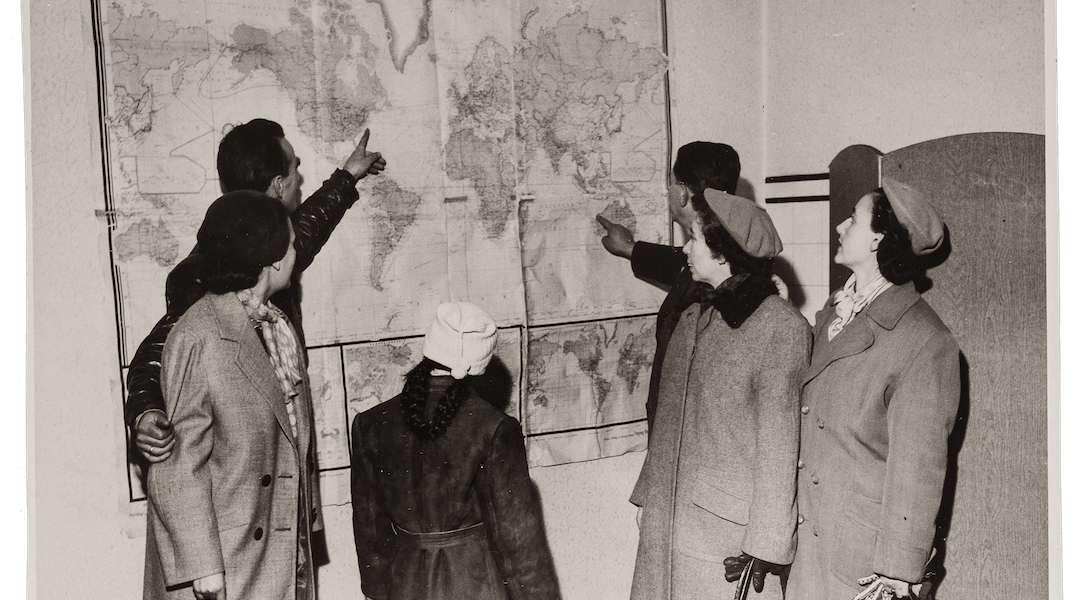How Israel Police Allowed Gay Pride Stabber To Strike Again

Graphic by Angelie Zaslavsky
The stabbing attack at Jerusalem’s gay pride parade on Thursday was the result of a failure by police intelligence. Jerusalem police admit that they knew Yishai Schlissel was released from prison in June after serving 10 years in Ma’asiyahu prison for a similar stabbing attack at the 2005 Jerusalem Gay Pride parade, where he wounded three people.
Since being released from prison, Jerusalem District Intelligence flagged Schlissel as someone who was liable to act against members of the gay community. However, these intelligence assessments did not specifically refer to Schlissel targeting this year’s parade.
READ: The Ultra-Orthodox Hatred That Led To Gay Pride Attack
The Israel Prison Service informs the police about prisoners who complete their sentences or are released on furlough using a computerized system. The system is updated every eight hours and provides general information. It was put in place primarily to alert the police to the release of abusive husbands who may seek to attack their wives again.
The police’s intelligence coordinators are therefore aware when inmates go free. But if the convicts aren’t identified as dangerous, no one is assigned to analyze their data and ask the important questions: Did they undergo a process of rehabilitation? Did they express regret over their crimes? Are there signs that point to the likelihood that they will resume criminal activity?
Schlissel appears to have announced his intentions in leaflets distributed in his hometown of Modiin Illit shortly before the event, residents said.
“For our many sins, the evil ones want to have a parade of abomination in the king’s city once again…,” wrote Schlissel, who was only recently released from prison after serving a ten-year sentence for a similar attack at the 2005 Jerusalem Gay Pride parade.
“God is testing us to see if we’re faithful to him and if we care about the desecration of his great name or that everyone just care about themselves, about their own body, so it appears that it’s the duty of every Jew to expose himself to beatings and imprisonment and in my opinion to danger too, and join together to stop and abort this sacrilege.”
After stabbing three people at the parade a decade ago, Schlissel, then 40 years old, from Modiin Illit, was convicted of attempted murder and aggravated assault. The Jerusalem District Court sentenced him to 12 years in prison, after the judges ruled that Schlissel was responsible for his actions and that he was determined to harm the marchers, rejecting the defense’s claim that he “acted under a clear command, as a delegate of the Almighty, who ordered that the sacrilege involved of march is stopped.”
But in 2007, following an appeal, the Supreme Court mitigated his sentence to 10 years, noting out its doubt that Schlissel had a criminal intent in one of the stabbings due to “limited evidence.”
The Supreme Court changed the charge from “aggravated assault” to “negligence,” without changing the monetary compensation the wounded was to receive.
The security coordinator for the Judea and Samaria Police District had to have been aware of Schlissel’s activities, and had a duty to inform his Jerusalem counterpart. The Jerusalem District, however, bears full responsibility for failing to take Schlissel into account in the course of its months-long planning for the parade.
The Judea and Samaria Police District said after the attack that it was not up to them to keep track of Schlissel after his release, even though he resides in their jurisdiction, because his crime was perpetrated in the Jerusalem district.
Now the police will be asked why Schlissel was not required to report to a police station during the parade. Public Security Minister Gilad Erdan has already issued a condemnation of the attack and instructed police to establish a panel to examine the failures that led to the attack.
The police will have to explain why the protocol under which known soccer hooligans are required to report to a police station when their team is playing was not employed in the case of Schlissel during the Jerusalem Pride parade.
Jerusalem District Police chief Moshe Edry said police didn’t have concrete intelligence that Schlissel was in the area of the parade. “We were prepared for every scenario, but our perimeter was breached. This is a severe, difficult incident, which required us to investigate to find out what fault cause this breach,” he said.















